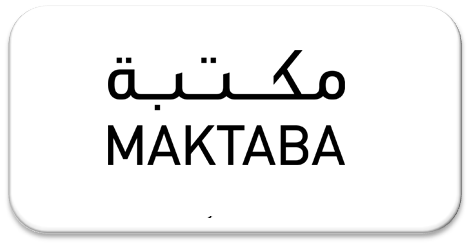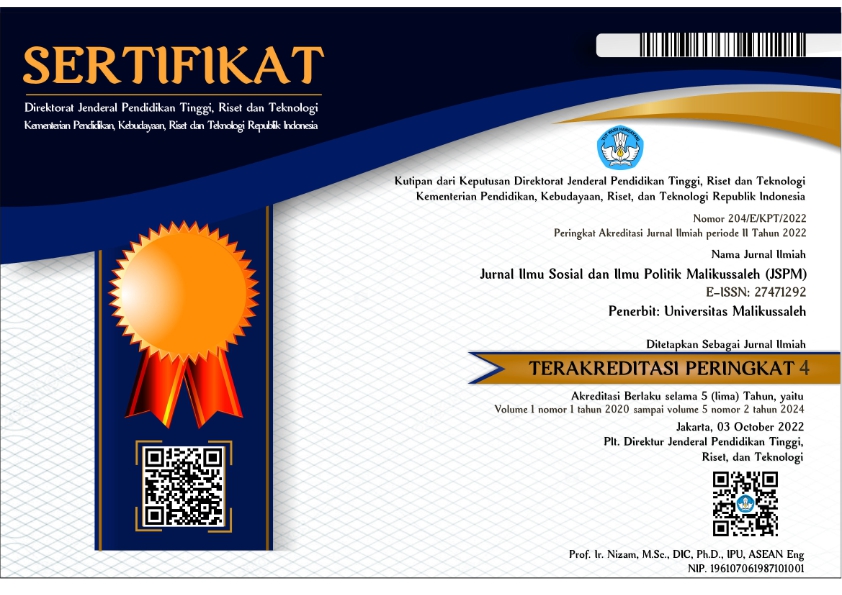AI dan Agama: Tantangan dan Peluang dalam Era Digital
Abstract
This article addresses the challenges and opportunities arising from the interaction between Artificial Intelligence (AI) and religion in the digital era. Concurrently with the advancement of technology, AI has demonstrated its capability to access and analyze an extensive array of data, encompassing religious texts among others. This phenomenon introduces new prospects for the interpretation and comprehension of religious texts, previously confined to the purview of theologians and scholars but now rendered accessible to a broader spectrum of individuals. Nevertheless, this development also engenders a constellation of challenges. The present article endeavors to elucidate the manner in which religion can acclimate itself to the progressively augmenting role of AI within our society. The foremost challenges that confront religion in this digital epoch shall be expounded upon. Moreover, an examination of how religion can harness this technology for its own purposes will be undertaken. Furthermore, an inquiry into the ethical boundaries governing the role of technology within the realm of religion will be conducted. With a focal point on these inquiries, the article seeks to furnish a comprehensive delineation of the role of AI in the religiosity of the future.
Artikel ini membahas tantangan dan peluang yang muncul dari interaksi antara kecerdasan buatan (AI) dan agama dalam era digital. Seiring dengan semakin canggihnya teknologi, AI telah mampu mengakses dan menganalisis data yang sangat luas, termasuk teks-teks keagamaan. Hal ini di satu sisi memberikan kemungkinan baru untuk interpretasi dan pemahaman teks agama, yang sebelumnya menjadi wilayah eksklusif para teolog dan ulama, sekarang dapat dilakukan oleh siapa saja. Meskipun demikian, hal ini juga menimbulkan sejumlah tantangan. Artikel ini akan menjelaskan bagaimana agama dapat beradaptasi dengan peran AI yang semakin meningkat dalam masyarakat kita. Apa tantangan terbesar yang dihadapi oleh agama di era digital ini? Bagaimana agama bisa memanfaatkan teknologi ini untuk tujuan mereka sendiri? Dan apakah ada batas etika bagi peran teknologi dalam agama? Dengan berfokus pada pertanyaan-pertanyaan ini, artikel ini berusaha untuk memberikan gambaran komprehensif tentang peran AI dalam agama masa depan.
Keywords
Full Text:
PDFReferences
Adams, R. (2021). Can artificial intelligence be decolonized? Interdisciplinary Science Reviews, 46(1–2), 176–197. https://doi.org/10.1080/03080188.2020.1840225
Ashraf, C. (2022). Exploring the impacts of artificial intelligence on freedom of religion or belief online. The International Journal of Human Rights, 26(5), 757–791. https://doi.org/10.1080/13642987.2021.1968376
Balle, S. (2023). Theological Dimensions of Humanlike Robots: A Roadmap for Theological Inquiry. Theology and Science, 21(1), 132–156. https://doi.org/10.1080/14746700.2022.2155916
Beavis, M. A., Dunbar, S. D., & Klassen, C. (2013). The Journal of Religion and Popular Culture : more than old wine in new bottles. Religion, 43(3), 421–433. https://doi.org/10.1080/0048721X.2013.801715
Blindheim, K., Solberg, M., Hameed, I. A., & Alnes, R. E. (2023). Promoting activity in long-term care facilities with the social robot Pepper: a pilot study. Informatics for Health and Social Care, 48(2), 181–195. https://doi.org/10.1080/17538157.2022.2086465
Bruun, E. P. G., & Duka, A. (2018). Artificial Intelligence, Jobs and the Future of Work: Racing with the Machines. Basic Income Studies, 13(2). https://doi.org/10.1515/bis-2018-0018
Collins, H. (2021). The science of artificial intelligence and its critics. Interdisciplinary Science Reviews, 46(1–2), 53–70. https://doi.org/10.1080/03080188.2020.1840821
Geraci, R. M. (2006). Spiritual robots: Religion and our scientific view of the natural world. Theology and Science, 4(3), 229–246. https://doi.org/10.1080/14746700600952993
Geraci, R. M. (2007). Robots and the Sacred in Science and Science Fiction: Theological Implications of Artificial Intelligence. Zygon®, 42(4), 961–980. https://doi.org/10.1111/j.1467-9744.2007.00883.x
Geraci, R. M. (2008). Apocalyptic AI: Religion and the Promise of Artificial Intelligence. Journal of the American Academy of Religion, 76(1), 138–166. https://doi.org/10.1093/jaarel/lfm101
Gitomer, J. (1986). Artificial Intelligence. Journal of Information Systems Management, 3(1), 58–60. https://doi.org/10.1080/07399018608965231
Johannes Bernhardt. (2022). Pepper the Robot. Badisches Landesmuseum.
Keyes, O., Hitzig, Z., & Blell, M. (2021). Truth from the machine: artificial intelligence and the materialization of identity. Interdisciplinary Science Reviews, 46(1–2), 158–175. https://doi.org/10.1080/03080188.2020.1840224
Löffler, D., Hurtienne, J., & Nord, I. (2021). Blessing Robot BlessU2: A Discursive Design Study to Understand the Implications of Social Robots in Religious Contexts. International Journal of Social Robotics, 13(4), 569–586. https://doi.org/10.1007/s12369-019-00558-3
Rähme, B. (2021). Artificial Intelligence and Religion: Between Existing AI and Grand Narratives. Material Religion, 17(4), 547–549. https://doi.org/10.1080/17432200.2021.1947030
Reed, R. (2021). A.I. in Religion, A.I. for Religion, A.I. and Religion: Towards a Theory of Religious Studies and Artificial Intelligence. Religions, 12(6), 401. https://doi.org/10.3390/rel12060401
Rohit R Nair. (2019, August). Mindar The Robot Teaches Heart Sutra At Japan’s Buddhist Temple. IBTimes.
Singler, B. (2018). An Introduction to Artificial Intelligence and Religion For the Religious Studies Scholar. Implicit Religion, 20(3), 215–231. https://doi.org/10.1558/imre.35901
Tecuci, G. (2012). Artificial intelligence. WIREs Computational Statistics, 4(2), 168–180. https://doi.org/10.1002/wics.200
Trovato, G., Lucho, C., Ramon, A., Ramirez, R., Rodriguez, L., & Cuellar, F. (2018). The creation of SanTO: a robot with “divine” features. 2018 15th International Conference on Ubiquitous Robots (UR), 437–442. https://doi.org/10.1109/URAI.2018.8442207
Warner, M. (2012). Reflections on Technology and Intelligence Systems. Intelligence and National Security, 27(1), 133–153. https://doi.org/10.1080/02684527.2012.621604
DOI: https://doi.org/10.29103/jspm.v4i2.12408
 Article Metrics
Article Metrics
 Abstract Views : 2110 times
Abstract Views : 2110 times
Refbacks
- There are currently no refbacks.
Copyright (c) 2023 Sehat Ihsan Shadiqin, Tuti Marjan Fuadi, Siti Ikramatoun

This work is licensed under a Creative Commons Attribution-ShareAlike 4.0 International License.
INDEXED BY:




.png)









Redaksi Jurnal Ilmu Sosial dan Ilmu Politik Malikussaleh (JSPM): Gedung Fakultas Ilmu Sosial dan Ilmu Politik Universitas Malikussaleh. Kampus Bukit Indah Jln. Sumatera No.8, Kec. Muara Satu Kota Lhokseumawe, Prov. Aceh, Indonesia. eMail: jspm@unimal.ac.id

This work is licensed under a Creative Commons Attribution-NonCommercial-ShareAlike 4.0 International License



.png)



